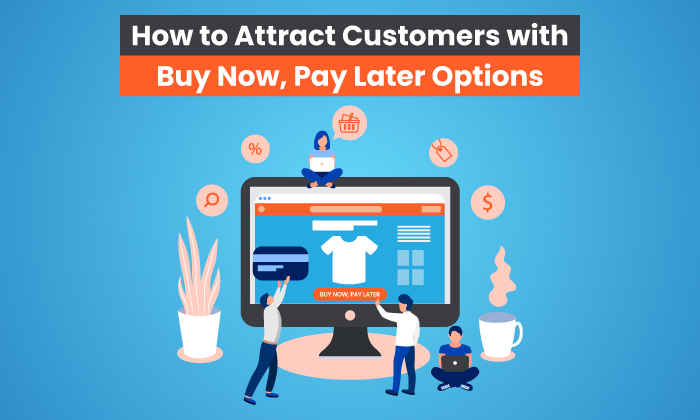
Article sponsored by PayPal
Buy Now, Pay Later (BNPL) is the grown-up, digital version of installment plans of the past. BNPL allows consumers to split large purchases into several monthly payments, interest-free. The industry is growing fast, with 37.7 percent of US consumers choosing the option as of July 2020.
Customers don’t just like BNPL; it also encourages them to manage their budget in a way that helps them pay for higher-priced items. In fact, 44 percent of consumers say the use of BNPL is somewhat or very important to determining how much they spend.
The reason for the popularity is pretty straightforward. Buy Now, Pay Later offerings allow consumers to split up large purchases over several months. In times of economic uncertainty, it’s a relatively pain-free way for consumers to increase financial flexibility and access credit—–without paying interest or applying for a credit card.
BNPL helps online retailers attract customers and increase revenue, which is why business leaders are taking note. If you’re considering BNPL for your organization, here’s how to get started.
1. Select a Buy Now, Pay Later Provider You Trust
The first step is to select a BNPL provider. Several tools and apps offer this feature, including PayPal with their Pay in 4 option. Each tool may offer similar features and integrations, but there are several differences to note.
PayPal’s offering integrates with the PayPal wallet, allowing users to easily manage payments.
When comparing different BNPL options, you’ll want to consider platforms consumers trust. Familiar options like PayPal may increase consumer trust, which may increase sales. For example, a recent IPSOS study found consumers are 54 percent more likely to purchase from online retailers that offer PayPal, and a recent Morning Consult survey found PayPal is the #2 trusted brand in the world.
2. Highlight Your BNPL Payment Option
BNPL allows consumers to make larger purchases they may not otherwise have had the funds to pay for in one go. This can help drive sales, especially for online stores. However, to effectively encourage those conversions, businesses need to highlight the option early in the purchase cycle — before consumers decide an item is too costly and exit the funnel.
For example, CMOs could have their marketing team test messaging on their product pages or add a program logo and a short description next to the add to cart button.
To determine the best placement, locate where customers drop off and add BNPL language beforehand. For example, if a large portion of traffic drops off from the product description page, consider adding BNPL information near the search bar or on the category or product page.
3. Include a Brief Description of Your BNPL Option On Your Checkout Page
As consumers add items to their shopping cart, the cost can quickly add up. They may abandon their cart when they see the final amount — but the BNPL messaging alongside other trusted payment options may encourage them to complete the purchase.
To make the BNPL option stand out, have design and UX teams test different placements, for example above and below other payment options. Exit-intent popups mentioning the availability of BNPL may also encourage conversions.
Testing is the only way to know what format will drive your audience to convert.
4. Track the Success of Your BNPL Strategy and Make Adjustments as Needed
Like every other marketing and sales strategy, testing is integral to a successful BNPL strategy. Understanding what works — and what doesn’t— helps allow your marketing teams to pivot as needed. For example, you might edit your direct marketing or change the design to test different copy alternatives, placement of BNPL mentions, and ad campaign targeting.
Note that BNPL isn’t just effective at helping drive sales. It may also drive higher average order values as users may be more willing to buy that extra shirt or try a new cologne when they can split up payments. Based on an analysis of PayPal internal data from October 2020 through January 2021, Pay in 4 average order value is 39% higher than standard PayPal transactions.
Here’s a few KPIs your team should track to gauge the success of your BNPL strategy:
- Overall conversion rates
- Total sales
- Cart abandonment rates
- Average order value
- Customer lifetime value
What do you do if BNPL isn’t generating the results you’d hoped for? Start by testing each step in the process. Where are users finding out about the BNPL option? Should it be earlier in the process? What portion of your audience are you targeting? Remember, BNPL is incredibly popular with younger users.
Buy Now, Pay Later Frequently Asked Questions
What is Buy Now, Pay Later?
Buy now, pay later (often shortened to BNPL) is a financing option that allows consumers to split purchases into several, often interest-free, payments.
What are the benefits of BNPL for ecommerce companies?
BNPL may encourage consumers to make purchases and often enables them to spend more. Offering a trusted BNPL option can increase revenue, especially as more consumers use BNPL options.
What is PayPal's Pay in 4?
Pay in 4 is PayPal’s buy now, pay later option that allows consumers to break purchases into four interest-free payments, one every two weeks, starting the day of purchase. Pay in 4 can be used for eligible purchases between $30 to $1,500. Learn more here.
Buy Now, Pay Later Conclusion
Did you know Millennials and GenZ consumers are 28 percent more likely to shop with merchants that offer a buy now pay later option? Is your business shying away from offering this convenient new payment option?
Your competitors aren’t, and they may be reaping the benefits of increased loyalty and growing sales.
Learn more about how PayPal’s Pay in 4 can drive eCommerce growth here.
from Blog – Neil Patel https://ift.tt/3CrXyca
via IFTTT
No comments:
Post a Comment